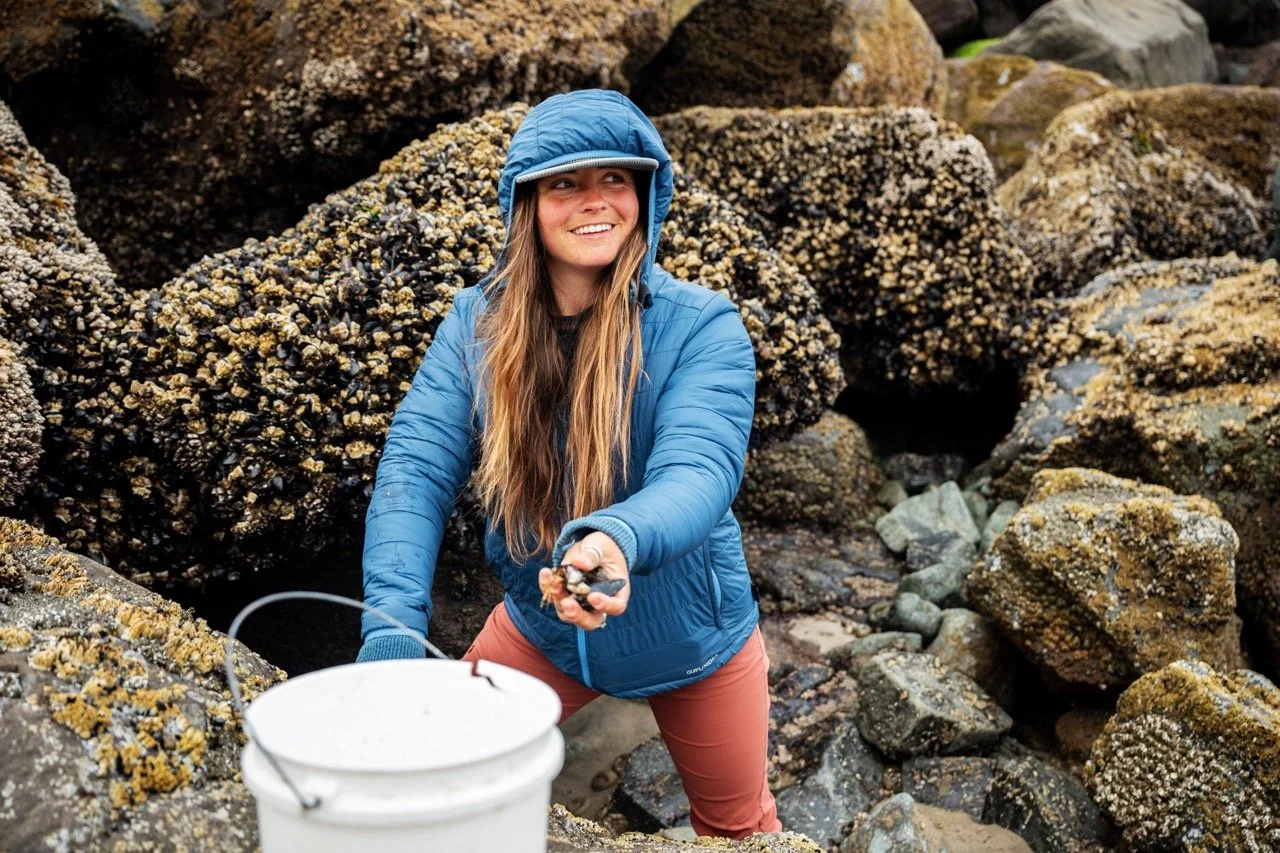Our Team
-

Rachelle Hacmac
Rachelle is a photographer, storyteller, and marketing consultant with deep experience in sustainable seafood, fisheries, and restaurant marketing. Born and raised in Oregon, she grew up crabbing, clamming, and fishing along the Pacific Northwest coast. Those early days on the water sparked a lifelong passion for local seafood and coastal adventure. Keep up with her adventures on Instagram and TikTok.
-

Alanna Kieffer
Alanna is a foraging fanatic, fisherman, seaweed farmer and surfer. She’s lived on the Oregon Coast since high school where shes spent the past decade immersed in rocky intertidal ecosystems and educating others. Through her business Shifting Tides she is a marine science and sustainable seafood educator, and guides coastal foraging and tidepool workshops. Learn from Alanna on Instagram and TikTok.
-

Kristen Penner
Kristen is a commercial crabber and connector of all people on the Oregon coast! When moving to eastern Oregon she opened a small restaurant where she learned the fun and challenges of food systems. Moving to the coast, she became a commercial crabber off a hand-made wooden dory boat. While not crabbing anymore she now she’s stayed connected to the seafood scene working as a food systems consultant helping small producers increase their offerings and distribution across diverse regions in Oregon.

